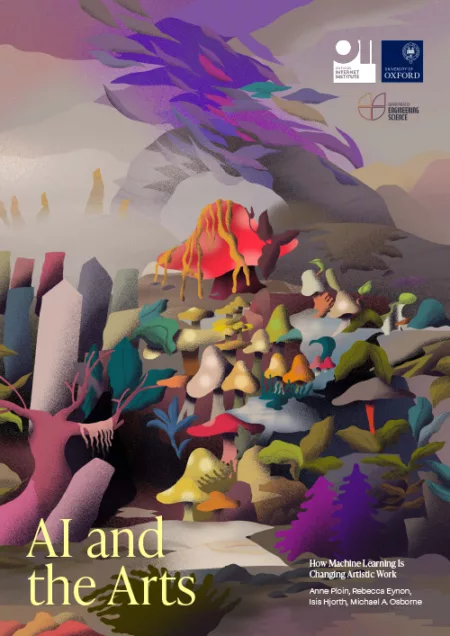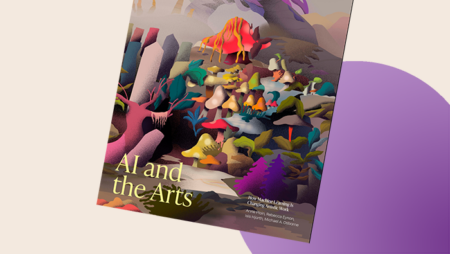
Professor Michael Osborne
Dyson Associate Professor in Machine Learning, Department of Engineering Science, University of Oxford
Project role: Principal Investigator

This project addresses the following research question: “What are the present and future capabilities of Creative Artificial Intelligence, and to what degree can this intelligence be harnessed complementarily to aid human creativity and tasks?” We address this question through a novel methodological approach, combining social science methods and machine learning techniques.
Creativity is the ability to generate ideas or artefacts that are both novel and valuable; machine creative outputs have historically been neither. However, with recent developments in machine learning, we have witnessed examples of what might be called Creative Algorithmic Intelligence (CAI) emerge in the domain of cultural production – from AI-generated news articles in traditional media outlets to literary and musical works. Given how recent these developments are, the following have not yet been well-established: the scope of CAI, the significance of these developments to understanding human creativity, and the ways in which CAI may assist humans in creative endeavours.
Synergistic human/CAI collaboration is of particular relevance. First, as more tasks become automated, we need to find ways to enhance and develop activities in which human aptitudes are superior to that of machines, and activities from which humans might derive the most meaning. This includes creative tasks, with evidence suggesting direct links between creative and cultural engagement and human well-being.
The above leads us to hypothesise that:

Dyson Associate Professor in Machine Learning, Department of Engineering Science, University of Oxford
Project role: Principal Investigator

Professor of Education, the Internet and Society
Project role: Co-Investigator
Rebecca Eynon's research focuses on learning and the Internet, and the links between digital and social exclusion.

DPhil Student
Project role: Researcher
Alongside work on AI, AM's doctoral research is in the sociology of knowledge, focusing on the online work of independent commissions and their role in British politics.

Department of Engineering Science, University of Oxford
Project role: Researcher
By Anne Ploin, Rebecca Eynon, Isis Hjorth, and Michael A. Osborne
There has been much talk about the potential of AI, but could it really transform the creative arts?


3 March 2022
There has been much talk about the potential of AI, but could it really transform the creative arts?
